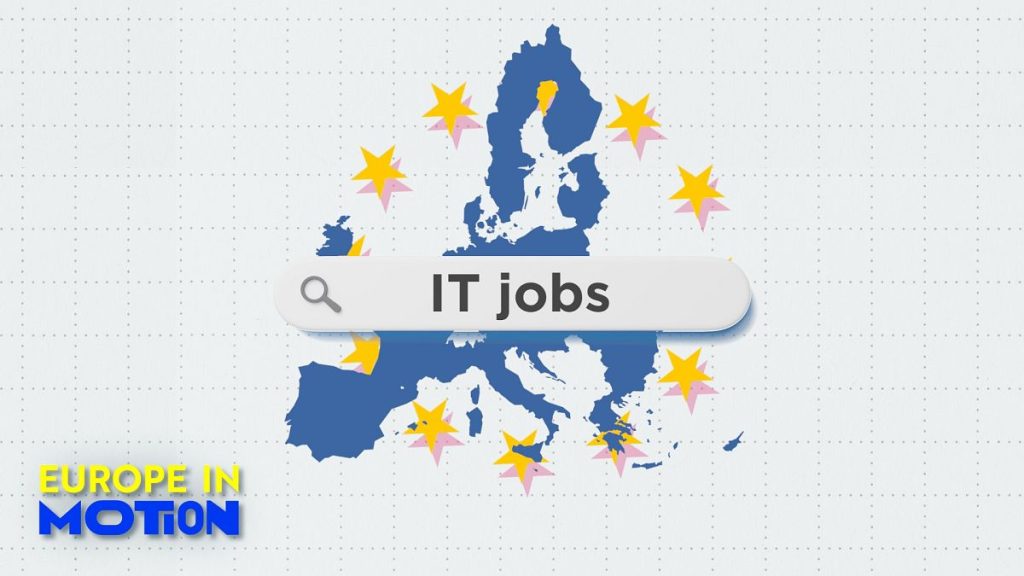The information technology (IT) sector is experiencing a significant skills gap, with a growing disparity between the demand for skilled professionals and the available talent pool. This shortage is impacting businesses across Europe, hindering their ability to innovate, grow, and compete in the digital economy. The problem is particularly acute for larger companies, which often require specialized expertise and experience, further exacerbating the recruitment challenge. This scarcity of qualified IT professionals has far-reaching consequences, affecting not only individual businesses but also the overall economic landscape.
The scarcity of IT talent is widespread across Europe, with variations in severity among different countries. Germany, the Czech Republic, Malta, Austria, and Luxembourg are facing the most significant shortages, with over 65% of businesses reporting difficulties in filling ICT specialist roles. This high percentage underscores the urgent need for effective strategies to address the skills gap in these nations. For large enterprises in these countries, the challenges are even more pronounced, with shortages exceeding 70% in several cases, highlighting the particular difficulties faced by larger organizations in securing the necessary IT expertise. While some countries like Spain, Poland, and Bulgaria experience lower levels of difficulty, even in these nations, a significant proportion of companies (at least 30%) still grapple with ICT talent shortages.
Several factors contribute to the difficulty in recruiting IT professionals. A primary obstacle is the sheer lack of applicants for open positions, indicating a fundamental gap in the available talent pool. Furthermore, even when applications are received, many candidates lack the necessary qualifications and experience to meet the demands of the roles. This skills mismatch further complicates the recruitment process, requiring businesses to invest in training and development programs to bridge the gap. Finally, high salary expectations among IT professionals, often driven by the competitive market for their skills, can pose a challenge for some companies, particularly smaller businesses with limited budgets.
The IT sector offers competitive salaries, often surpassing average wages in other industries. This trend is evident across Europe, with IT salaries consistently outpacing overall wage growth. This discrepancy highlights the high demand for IT skills and the premium placed on expertise in this field. The robust salary growth in the IT sector is a reflection of the crucial role technology plays in modern businesses and the increasing reliance on digital solutions. This trend is likely to continue as technology continues to evolve and businesses increasingly depend on IT professionals to drive innovation and maintain competitiveness.
Analyzing the highest-paid IT positions provides insights into the specific areas of expertise that are most in-demand and highly valued. The role of Chief Information Technology Officer (CIO) commands the highest salary, reflecting the strategic importance of this position in leading an organization’s technology strategy. Consultancy roles, particularly those specializing in SAP/ERP, also command high salaries, highlighting the demand for expertise in enterprise resource planning systems. Data-focused roles, such as data engineers and data scientists, are also highly sought after and well-compensated, reflecting the growing importance of data analysis and management in modern businesses. These high salaries reflect the critical roles these professionals play in shaping and implementing technology strategies, managing complex systems, and extracting valuable insights from data.
The IT skills gap presents a significant challenge for businesses across Europe, impacting their ability to innovate, grow, and thrive in the digital age. The shortage is particularly acute for large companies and in specific countries like Germany, the Czech Republic, Malta, Austria, and Luxembourg. Several factors contribute to this gap, including a lack of applicants, a skills mismatch between available talent and job requirements, and high salary expectations. Addressing this challenge requires a multi-faceted approach, including investments in education and training, initiatives to attract and retain talent, and strategies to promote diversity and inclusion in the IT sector. These efforts are essential to ensure that businesses have access to the skilled workforce they need to succeed in the increasingly competitive digital landscape. The high salaries offered in the IT sector underscore the value placed on these skills and the importance of addressing the skills gap to support economic growth and innovation.

